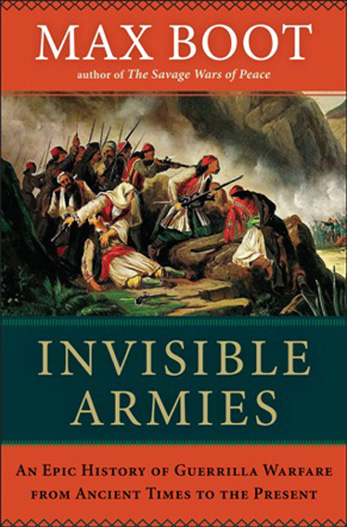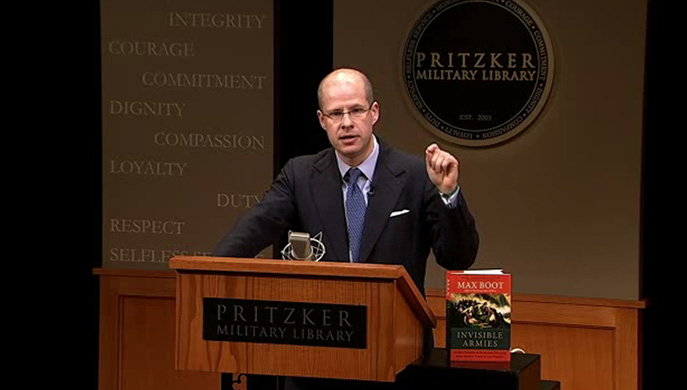
Record date:
Max Boot:
Invisible Armies
Invisible Armies by Max Boot examines the evolution of guerrilla warfare and terrorism, spanning 5,000 years of global history, leading up to the contemporary conflicts in Iraq and Afghanistan.
The author provides a detailed history and analysis of guerrilla fighters, strategists, and terrorists, from King David to Atila the Hun, from Mao Zedong to Fidel Castro, from Yasser Arafat to Osama bin Laden. Boot also profiles history’s most esteemed military thinkers, from French army general Hubert Lyautey to T.E. Lawrence, to General David Petraeus, the man who created modern U.S. counterinsurgency strategy. Boot condenses his observations and lessons on guerrilla warfare into “Twelve Articles.” One article notes that, while technology has been less important in guerrilla war than in conventional war, that may be changing because of weapons of mass destruction: “A small terrorist cell the size of a platoon might then have more killing capacity than the entire army of a nonnuclear state like Brazil or Egypt. That is a sobering thought.”
Max Boot is one of America's leading military historians and foreign-policy analysts. The Jeane J. Kirkpatrick senior fellow in National Security Studies at the Council on Foreign Relations in New York, he is also a contributing editor to the Weekly Standard and the Los Angeles Times, and a regular contributor to the New York Times, the Wall Street Journal, Commentary, and other publications.
The Council on Foreign Relations (CFR) is an independent, nonpartisan membership organization, think tank, and publisher dedicated to being a resource for its members, government officials, business executives, journalists, educators and students, civic and religious leaders, and other interested citizens in order to help them better understand the world and the foreign policy choices facing the United States and other countries.
This program is generously sponsored by the The Council on Foreign Relations.










